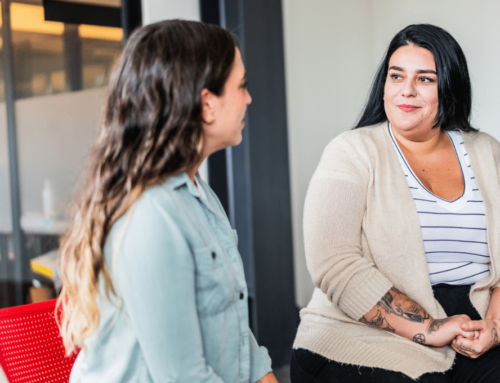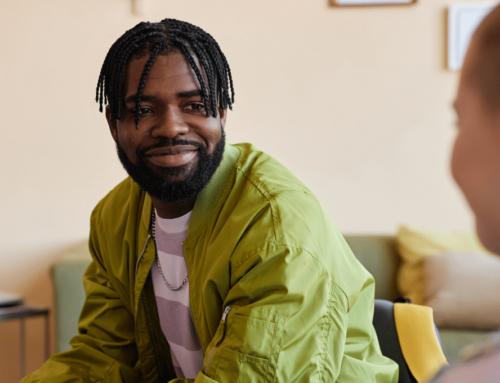Stress and anxiety are two of the most common mental health issues of today. Whether driven by work, relationships or personal struggles, stress and anxiety can feel overwhelming and affect a person’s mental and physical health. Stress is a “state of worry or mental tension caused by a difficult situation,” whereas anxiety includes a more “persistent, excessive worry” which remains present “even in the absence of the stressor.” Understand the differences between stress and anxiety here.

Taking the steps to decrease levels of stress or minimize anxiety-inducing experiences can help ease daily functioning. Check out these four helpful tools for coping with stress and anxiety:
1. Yoga or Meditation
Physical and mental practices such as yoga or mindfulness meditation can help combat stress and anxiety. Research indicates yoga serves as a modern alternative treatment for mental health disorders. Mindfulness meditation involves focusing on the present moment to accept thoughts and feelings without judgement. Yoga combines physical movements with meditation techniques to calm the mind and reduce stress levels. Try exploring beginner classes at your local yoga studios, or experiment with meditation apps or at-home guided videos.
2. Exercise
Exercise of any sort remains a powerful physical tool for managing stress and anxiety. Moving the body releases endorphins (natural mood-boosters) to help individuals feel more focused and energized. Start with simple physical activities such as walking or jogging, and grow to team sports with friends and family.
3. Journaling
Practicing mental techniques can be very effective in navigating stress and anxiety. Journaling allows individuals to express their emotions in a safe and private space, which helps reduce overwhelming feelings. Writing can also help provide clarity and perspective on situations. Explore options for daily prompts from Parade or the Berkley Well-Being Institute to start your journal.
4. Breathing Techniques
Breathing tactics in scenarios of high stress or anxiety can help anchor the individual. Controlled breathing aims to regulate breaths through repeated breathing deeply inward through the lower abdomen for a few counts and outward for a few counts. Mindful breathing brings attention to your breathing to refocus the mind to the present.
While each of these tools can be effective in coping with stress or anxiety, it is important to determine which of these tool(s) work best for your individual needs. If feelings of stress or anxiety persist, Oaks is here to help.
If you or someone you love is struggling with mental health, consider speaking with a mental health professional. To learn more about Oaks services or schedule an appointment, taking the first step by calling our Access Center at 1-800-963-3377.








